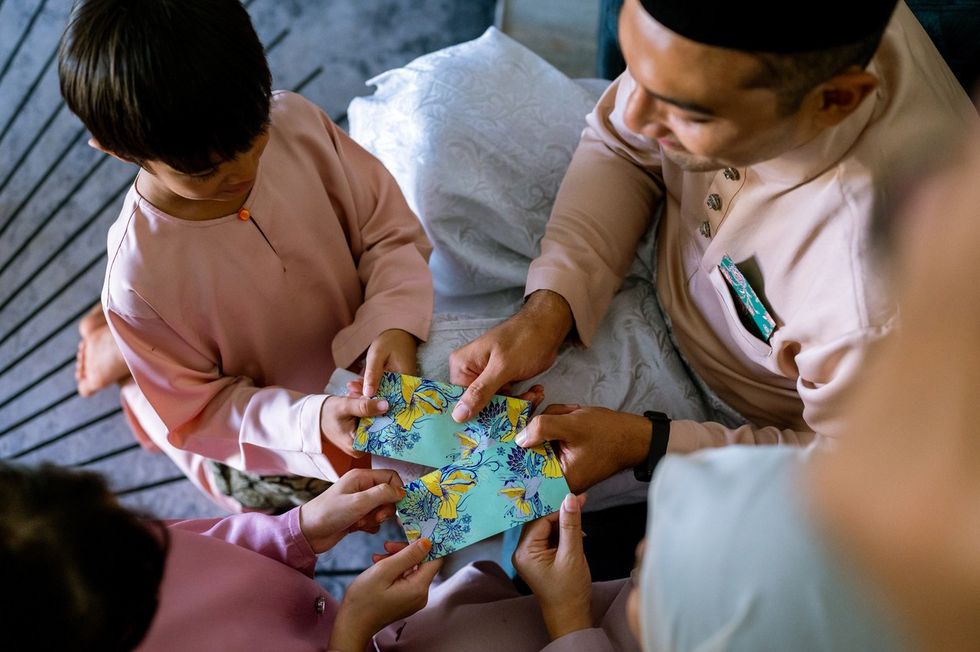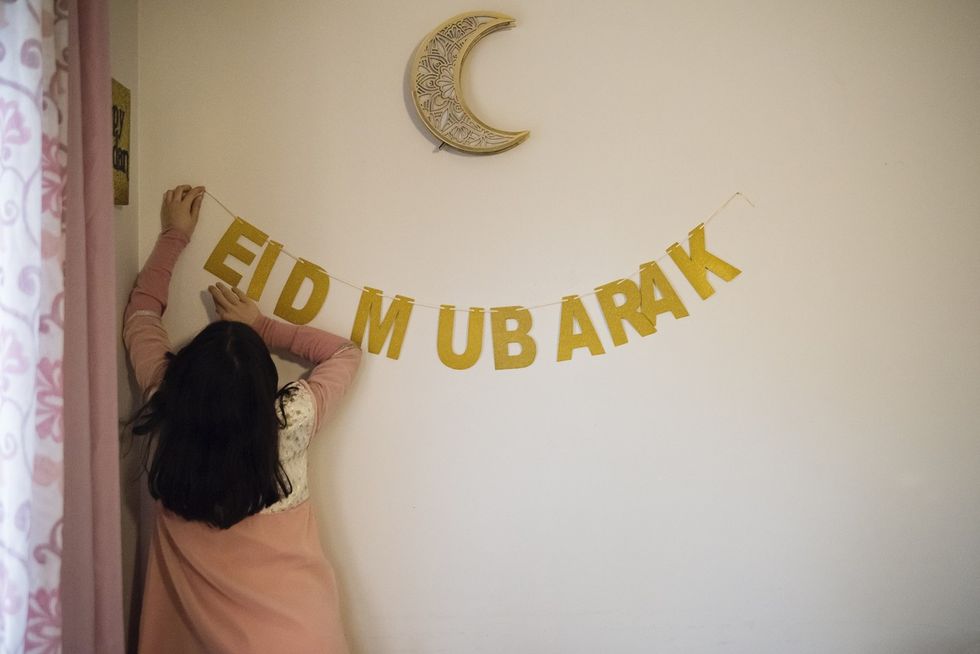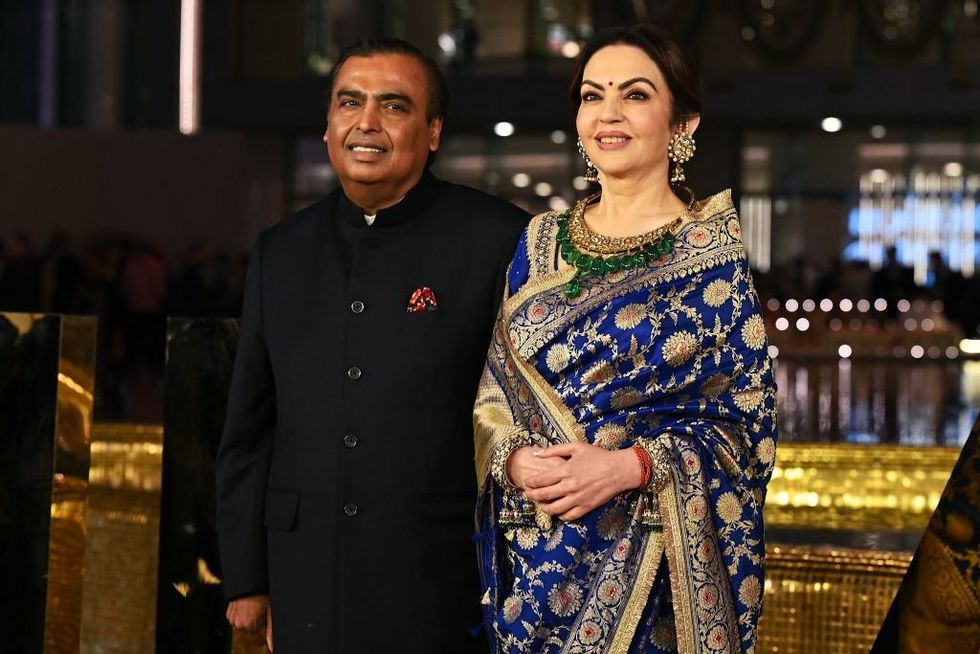Britain is in the midst of a knife crime epidemic. The total number of offences involving a knife or bladed instrument that have been recorded by police in the year to March 2018 rose to 40,147, a seven-year-high.
London has become a city ravaged by bloodshed as a result of knife attacks. There were 1,299 stabbings in the capital up to the end of April 2018, according to official statistics from the Met Police. Just this past week alone there have been five killings, taking the total number of murders in the city to 119 this year.
A knife crime may take one life directly, but indirectly it 'takes' many more. Eastern Eye looks at the story of one family whose lives were irretrievably broken as a result of losing a loved one to a horrific murder and how they are fighting for a change in law in his memory...
Zakariyya Islam was a 45-year-old husband and father-of-three girls. A joyful character, known for his big smile and warm bear-hugs when he met you, Zakariyya was a much-loved, highly-respected member of the community in Tower Hamlets, where he had spent his entire life.
His time as a scout leader, a caretaker at Stepney Green School and then later as a driving instructor made him a well-known figure in the close-knit community. But what made him a beacon of light for many was his selfless support for the Muslim community and his diligent voluntary work for the East London Mosque, which he supported from his teenage years right up until the day of his death.
"Zakariyya was our local hero," says Harun Rashid Khan, who is the secretary-general of the Muslim Council of Britain. "He was a role model for the community, especially for the young people of this area.
"He was also my friend and companion for over 35 years. His life was so colourful, we spent so much time together. I travelled a lot with Zakariyya. We even did Hajj together. And there isn’t a single thing I can say of criticism or fault-finding. If anything, his character was a hundred times better than mine in many ways.
"Zakariyya was the most liveliest among our group of friends. He used to make us laugh, make us cry, he used to entertain us. He was an example to us. He should be spoken about to our friends, our peers and our children as somebody to look up to as a man of good character, a man who was forthright and honest in society."
On September 14th 2015, Zakariyya completed his evening prayers at the East London Mosque and then headed off to his Islamic therapy centre opposite the mosque at Greatorex Street, in Whitechapel.
Zakariyya, who was a black-cab driver by trade, had opened the centre to help people through accepted Islamic practices. His work was approved and was supported by the East London Mosque. People from all walks of life, suffering from wide-range of emotional issues would visit him for spiritual support and guidance.
Though working as a black-cab driver was far more lucrative to him, Zakariyya’s desire to help people saw him spend more and more time at the centre. After his passing, people came in droves to reveal how Zakariyya had helped them and often treated them for free when he found out they were not financially stable.
On the evening of the 14th, sitting at his desk in his office, with his back turned from the door, Zakariyya was viciously attacked with a 25cm kitchen knife and was stabbed in the chest, stomach and had his heart punctured. He passed-away at the scene.
Ashfaq Choudhry, a 43-year-old dentist, had travelled from his home in Watford to murder Zakariyya. Choudhry was caught 30 minutes later and admitted he had ‘stabbed someone’.
At his sentencing, it was revealed that Choudhry had a history of anxiety, depression and psychosis and had gone to Zakariyya for treatment. He had also been arrested for two previous knife attacks. Despite all this, Choudhry had still been left free to work at a dental practice in North London.
At his sentencing, Choudhry was found guilty of manslaughter by reason of diminished responsibly at the Old Bailey, and was given a hospital order under the Mental Health Act, without a time limit.
The judge Richard Marks QC, described Zakariyya as an "outstanding individual", adding:
"There is no doubt that he (Mr Islam) was doing what he genuinely thought was best in order to alleviate your symptoms."
However, just over three years after committing murder and two-and-a-half-years after being sentenced, Choudhry could be free to walk the streets again – a horrifying thought for Zakariyya’s family who not only fear for their own safety, but also for the safety of the general public.
A mental health tribunal which was scheduled for Monday (12) but was postponed for a later date, will decide if Choudhry has been fully rehabilitated and ready to rejoin public life. Zakariyya’s family will have no say in the mater and will not be allowed to attend the tribunal.
On Friday (9) hundreds of members of the public as well as community leaders, including Tower Hamlets Mayor Jon Biggs; and Rushanara Ali, MP for Bethnal Green and Bow; came together at the East London Mosque for the 'Justice for Zakariyya Islam' campaign, which demands that Choudhry not be released over fears for public safety and a change in the law to allow more transparency and a greater role for a victim’s family in the tribunal process.
Rushanara Ali MP, who has been supporting Zakariyya's family in their campaign, paid tribute to the "amazing courage his wife, daughters and rest of family has shown". She is representing the family in order to get the government to place more importance to the needs of victims’ families in cases such as these.
Ali said: "The family are rightly concerned about their safety, concerned about the public’s safety, and concerned about a lack of transparency in the process of potentially releasing the man responsible for Mr Islam’s murder after just three years.
"Some of the questions I have been seeking answers to from the Justice Minister are what information family members, not just in this case, but in other cases, should expect? What sort of safeguarding should they be provided? Why isn’t there a stronger role, as this family has found, stronger space for family members within the (tribunal) system? What can we learn from other parts of the UK, such as Scotland, where there is greater transparency and information for family members in these sorts of cases. The Minister of Justice and the Secretary of State should be answering these questions.
"It is crucial the family has a strong voice and that the victim is heard. Of course there needs to be a balance but at the moment it seems to me, certainly in relation to this case that the family is being left in the dark and that is wrong. We will hold the Justice Minster to account and make sure the government listens to victims’ families."
Ali added: "And it is of course a terrifying prospect that perpetrator might carry out similar attacks in the future and that the family’s safety might be at risk.
"At a time when support systems in the NHS for the mental health service is breaking down, it is understandable that victims’ families in these situation are not going to have the confidence in mental health experts who ask for an early release say the perpetrator might not act again."
Julian Hendy is a documentary filmmaker who has worked for the BBC and ITV producing shows such as Panorama and Dispatches. In 2007, his father was stabbed to death outside his local newsagents by a stranger suffering from mental illness. The killer was known to the local mental health service after his family raised concern saying his mental health was deteriorating as a result of his drug abuse. Nothing was done however and he was left free to kill Hendy’s father.
Hendy, an investigative journalist of 20 years at the time of his father’s murder, found that the system was setup in way where he wasn’t able to find out information on the man who had killed his father. This led to him to create the Hundred Families organisation which supports families of people killed by someone suffering from mental health issues.
Speaking at Friday’s event, Hendy said: "When I spoke to the mental health trust they said he (the killer) would have to give his permission for me to find out anything about him. I thought that was just nonsense. The man who has just killed my dad has to give me his permission for me to find out because of his patient confidentiality.
"The man who killed Zakariyya has applied to a tribunal to be released. The trouble with the tribunal system is that it completely ignores the victim's family.
"Uniquely for a British court we are not even allowed to know the name of the judges or the people sitting on the panel making the decisions. We are not allowed to know the evidence they see. We are not allowed to know how they reached their decisions. We are not allowed to attend the hearing. We are not considered the interested party. We are not allowed to make personal statements of how the crime has effected us. We are not allowed to ask questions. Anything we say about the offender will be reported to the offender but anything he says about us or our loved ones will not be reported back to us. That’s not justice! Justice is not seen to be done.
"There should be changes in the law to give victims’ families effective rights in the tribunal process because they current system is a joke and families are not represented fairy at all. There should be a change in the law so that bereaved families can get the justice they and their loved ones deserve."
Hendy explained that a person being treated in hospital can get well quite soon because they are away from the "chaotic lifestyle that saw them spiral out of control in the first place". He said often patients get better because they are not taking drugs, alcohol and are taking their medication. But once they are out they could go back to their old ways and Hendy points to the numerous cases where mental health patients have been released from prison to recommit crime, including murder.
Hendy added: "I argue that somebody might have diminished responsibility because of mental illness but that doesn’t mean they have no responsibility!
"Releasing the man who killed Zakariyya will not be justice for his family or the wider community. He was convicted two-and-half-years ago. That is not enough time for them to have properly assessed his risk to the public. His ability to keep himself safe when he is out in the community."
Mayor Biggs agreed with Hendy describing the current tribunal system as "outrageous" and said he would use his powers to work with members of parliament to seek a changes.
"I am very clear that this is a just campaign and the law needs to be changed," said Biggs.
"Clearly when there is an issue of mental health we need to be compassionate and support people who are suffering trauma within themselves but we need to do so in a way that protects our community.
"You can do something bad and you can be held to account and you can be punished, you can learn, you can reform. But when the action is taking someone else’s life, that is an absolutely different order of offence from just about any other offence. And the way we deal with it cannot be justified as some sort of medical procedure or some sort of tribunal process. There needs to be a transparency and justice for victim's needs to be seen to be dome and that’s why I have no hesitation in supporting the campaign."
Biggs also paid tribute to Zakariyya saying he was someone who was "truly loved". He revealed that many of his colleagues and councillors had gone to Zakariyya for support and said he had helped them immensely.
"We should be proud that Zakariyya was part of our community and we will do everything we can do get justice for him," said Biggs.
As for Zakariyya’s family, they suffer from his loss each day. His brother, Abdun Noor, heartbreakingly revealed that their 84-year-old mother, who suffers from dementia, still doesn’t know that her son was murdered. She was told that he died from a stomach ailment, as the family felt knowing the truth would have had a detrimental effect to her already ailing health.
His wife and daughters are left with the profound aching of thoughts of all the happiness he would’ve experienced if his life wasn’t so brutally snatched away. In August, he would’ve become a grandfather for the first time. His eldest daughter, who got married just a month before her father passed away, welcomed a baby daughter into the world.
Paying tribute to her late father, his second daughter Zaynab said: "My father was a man of good character, integrity and dedication. My father left his mark on the hearts of everyone he came across. The ‘Gentle Giant’ was just that, kind and delicate, yet strong and firm in his belief in right and wrong. He believed everything good in life as a gift from God and strongly believed if we helped others, God in return would help us. Simply, my father was a man who would walk the earth twice over if he knew it would benefit you and make you smile."






















 Vikram Doraiswami
Vikram Doraiswami Andrew Quintman
Andrew Quintman Lord Jitesh Gadhia
Lord Jitesh Gadhia 
 Chairman and managing director of Reliance Industries Mukesh Ambani along with his wife Nita Mukesh Ambani (Photo: Getty Images)
Chairman and managing director of Reliance Industries Mukesh Ambani along with his wife Nita Mukesh Ambani (Photo: Getty Images)